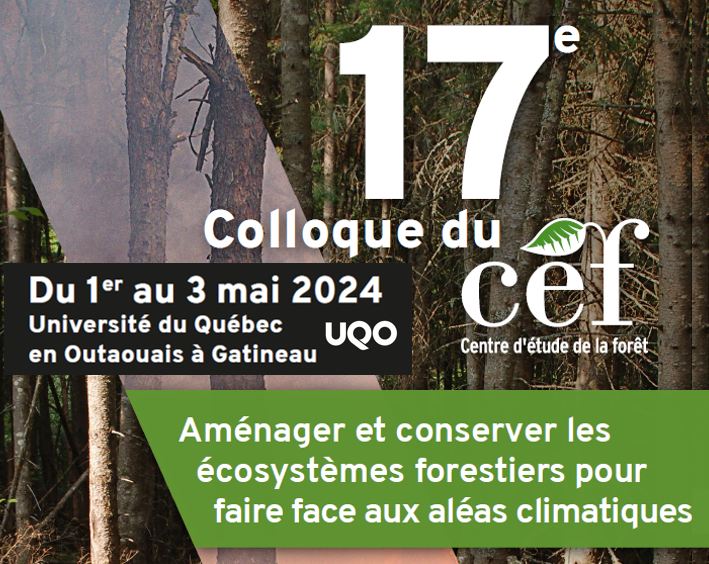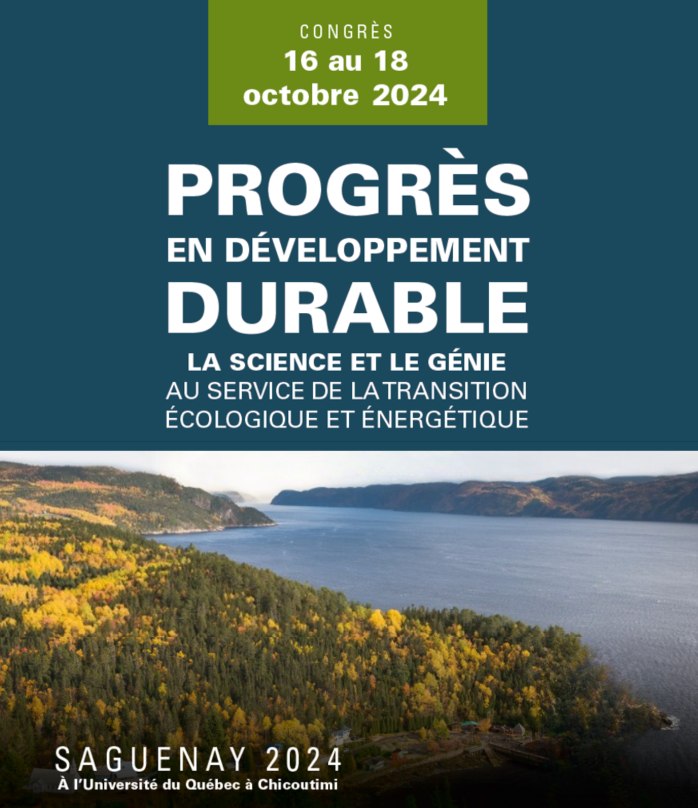
Luana Graham-Sauvé
Master
Impacts of partials cuts of the ecosystem based management zone and environment and structural parameters of mixedwood forest in the TRIAD context in haute Mauricie on the carabids (Coleoptera: Carabidae)
University of Québec in Montréal
Sciences' faculty
Department of biologicals Sciences
Building of Biologicals Sciences
Office SB-2105
141, av. du Président-Kennedy
Montréal (Québec) H2X 3Y7
Canada
Director: Timothy Work
Member of
- NSERC Industrial Chair-UQAT-UQAM in Sustainable Forest Management

- Centre for Forest Research

- Entomological Society of Quebec

Academic formation
- B.Sc. in ecology, 2008 (University of Sherbrooke
 )
)
- M.Sc. en biologicals sciences in forested entomology 2009-..., (University of Québec in Montréal
 )
)
Research project
Sustainable forest management and biodiversity conservation are priorities in Canada in the forest industry as demonstrated by the Montreal Process and the opinion of the Canadian Council of Forest Ministers (CCFM). One of the criteria of sustainable development recommended by the government is the conservation of biodiversity and ecosystem processes. In contrast to traditional strategies, forest companies allow now much room for partial cutting acting as a balance between the environment and their performance allowing them to be both profitable and responsible. Currently, three pilot projects for ecosystem based management - management that the goal is to maintain biodiversity and sustainability of ecosystems by reducing the gap between the managed forest and natural forest - are currently in public forests, aimed at developing and test methods and tools for ecosystem management. Monitoring of these projects will determine the feasibility and appropriateness of applying the ecosystem approach elsewhere in Quebec. The success or failure of such silvicultural strategies is estimated by, among other, the subsequent response of the biodiversity. Moreover, it is important to pay particular attention to structural and environmental parameters potentially responsible for changes in community assemblages of organisms. In Haute-Mauricie, Quebec, the Triad Project, one of three pilot projects, was established in 2003 to assess the effectiveness of functional zoning, which divides the territory into intensive management, ecosystem based management and conservation area. We will evaluate the response in terms of species richness, abundance and composition of a group of insects, ground beetles, taxa recognized as good bioindicators of forest. These will be collect in the following treatments: progressive seeding cuts (60% retention) multicohortes cuts (75% retention), clearcut (0-5% retention) and stands of old disturbance uncut (100% retention). Five replicates of plots with three transects spaced on average 15 m in each treatment were made and pitfall traps were installed. It is expected that there a positive relationship between species richness of forest specialists and the level of retention due to reduction of the microhabitats’ diversity and uniform structures, that the beetles are rich and abundant in an environment with high basal area, a litter thick, high moisture, cool and stable soil temperatures and / or rich in coarse woody debris. It provides greater richness and absolute abundance of beetles in clearcut because of the mix of communities (generalists and specialists) than in other areas. The statistical analysis attempts, first, to determine if there are assemblages of communities according to the silvicultural treatments and if there is a correlation between these assemblies and various environmental and structural parameters.
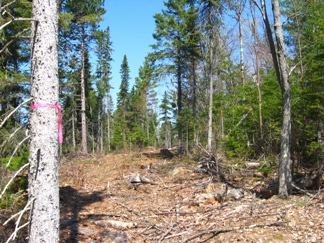
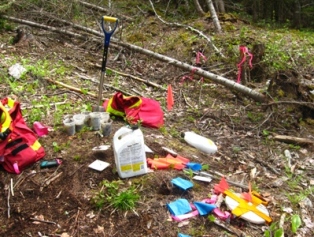
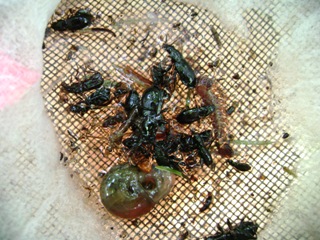
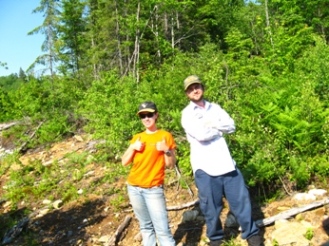
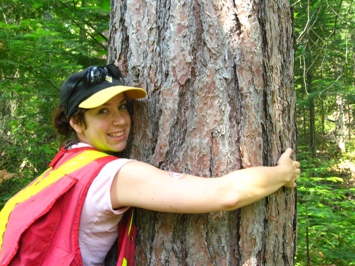
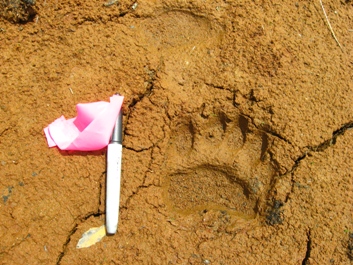
Stage outside country
During the summer of 2008, as a member of the NGO Ecology Without Borders (ESF), I had the chance to make a three and a half months stage in Argentina in collaboration with the Social Agricultural Program (PSA) and the Entre Rios National University (UNER) to assist small farmers of the Argentina countryside. To do this, stays two to seven days were made in families to gather data on their lifestyles social, cultural and economic through conversations and questionnaires. With these data, profiles of social, economic and cultural producers have been drawn to describe their status and help guide the aid will be given.
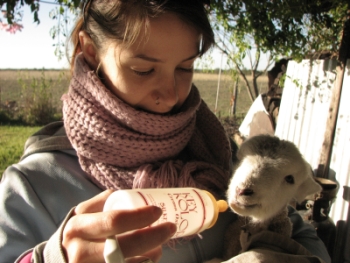
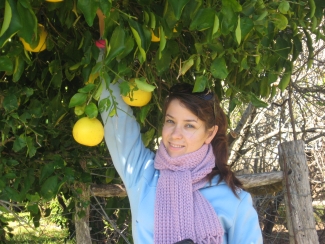
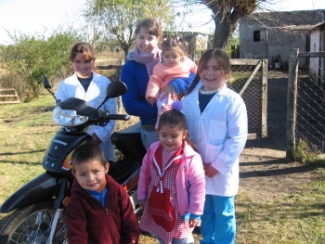
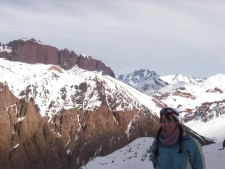

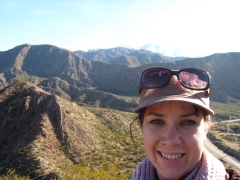
Oral communications and posters
Graham-Sauvé, L. and Work, T. 2009. Impact of logging on forest microhabitats in Haute-Mauricie: Response of insect predators and herbivores (in french) ![]() Centre for Forest Research (cfr) Annual Conference, April 19th 2009, Gatineau, QC. (Poster)
Centre for Forest Research (cfr) Annual Conference, April 19th 2009, Gatineau, QC. (Poster)
Graham-Sauvé, L. 2009. Impact of ecosystemic logging on forest microhabitats in Haute-Mauricie: Response of insect predators and herbivores (in french) ![]() Meeting on the Triad initiative, students-searchers-managers, June 15th 2009, Shawinigan, QC. (Presentation)
Meeting on the Triad initiative, students-searchers-managers, June 15th 2009, Shawinigan, QC. (Presentation)
Graham-Sauvé, L. and Work, T. 2009. Impact of ecosystem based management on the biodiversity of carabids in mixedwood forest. (in french) ![]() Annual congres of the Entomological Society of Québec, November 11th 2009, St-Jean-sur-Richelieu, QC. (Presentation)
Annual congres of the Entomological Society of Québec, November 11th 2009, St-Jean-sur-Richelieu, QC. (Presentation)
Graham-Sauvé, L. and Work, T. 2009. Whats are responses of carabids to ecosystem based cuts of the TRIAD? (in french) ![]() Annual Colloque the Chair in Sustainable Forest Management, December 9th 2009(Rouyn, QC) (Poster)
Annual Colloque the Chair in Sustainable Forest Management, December 9th 2009(Rouyn, QC) (Poster)
Graham-Sauvé, L. et Work, T. 2010. Impacts of the ecosystem based cuts on carabids (Carabidae : Coleoptera) biodiversity in mixedwood forest in Quebec. (in french) ![]() Centre for Forest Research (Cfr) Annual Conference, March 13th 2010, Orford, QC. (Poster)
Centre for Forest Research (Cfr) Annual Conference, March 13th 2010, Orford, QC. (Poster)
Graham-Sauvé, L. 2010. Impacts of the ecosystem based cuts of TRIAD project in haute Mauricie on biodiversity indicators : carabids (Carabidae : Coleoptera).(in french) ![]() Meeting on the Triad initiative, students-searchers-managers, September 21st 2010, La Tuque, QC. (Presentation)
Meeting on the Triad initiative, students-searchers-managers, September 21st 2010, La Tuque, QC. (Presentation)
Graham-Sauvé, L. et Work, T. 2010. Response of carabids (Carabidae : Coleoptera) to the ecosystem based cuts of TRIAD project in haute Mauricie : partials cuts, the least worst.(in french) ![]() Annual congres of the Entomological Society of Quebec, November 11th 2010, Trois-Rivière, QC. (Presentation)
Annual congres of the Entomological Society of Quebec, November 11th 2010, Trois-Rivière, QC. (Presentation)
Graham-Sauvé, L. et Work, T. 2010. Carabids response to partials cuts in the ecosystem based management zone of the TRIAD project in haute Maurice : partiales cuts, the least worst.(in french) ![]() Annual Colloque the Chair in Sustainable Forest Management, Novembre 23th 2010, Rouyn, QC. (Presentation)
Annual Colloque the Chair in Sustainable Forest Management, Novembre 23th 2010, Rouyn, QC. (Presentation)
Graham-Sauvé, L. et Work, T. 2011. Réponse des carabes aux coupes de la zone d’aménagement écosystémique du projet Triade en haute Mauricie.(in french) ![]() Centre for Forest Research (Cfr) Annual Conference, April 12nd 2011, Québec, QC. (Presentation)
Centre for Forest Research (Cfr) Annual Conference, April 12nd 2011, Québec, QC. (Presentation)
Grants, prizes and distinction
- 2009 : Recipient of Excellence Grant UQAM Graduate Fund (accessibility and success in education - FARE) Department of Biological Sciences (5000 $)
- 2011 : Ambassadress of the promotional campaign "Les sciences s'appliquent à l'UQAM"








